Sé Reed:
[0:06] 5 4 3 2 1 beep!
Please leave a message.
Jason Cosper:
[0:13] This is episode 451 of WPwatercooler, accelerating WordPress.
Sé Reed:
[0:16] With Jonathan Wold. Oh hey, I’m Sé Reed. I make WordPress, teach WordPress, teach WordPress. I do less teaching, you’d think.
Jason Cosper:
[0:29] And go ahead and follow us and hang out on the discord. Yeah, I think we need to make a meme channel, by the way, on the discord.
We haven’t, we haven’t, we don’t have one yet. And I think we should, we should have a meme channel.
Jonathan Wold:
[0:57] Intro has seriously upped its game since the last time I was on that was that was fantastic.
Sé Reed:
[1:02] We’re professionals.
For 10 years. Welcome to the back to the show friend of the show.
Jonathan Wold:
[1:10] Thank you.
Sé Reed:
[1:10] Jonathan Wold hasn’t been on in a while.
Jason Cosper:
[1:14] A former a former regular now an irregular but we’re happy to have you back either way.
Sé Reed:
[1:19] He was always irregular.
Jonathan Wold:
[1:20] He was never a regular regular irregular regular I made it count when I showed up. Yeah. And that was always fun.
Sé Reed:
[1:28] So you’re here. Tell us about, because I don’t know, because it’s all new new.
So what’s your new like, hi, I’m Jonathan Wold intro. Oh, I don’t know. I don’t know about that.
Jonathan Wold:
[1:42] I can’t really follow yours. It’s so clean and crisp. I teach, I preach. I don’t know.
Sé Reed:
[1:48] I mean, it’s good. Yeah, it is good.
Jonathan Wold:
[1:51] Yeah.
Sé Reed:
[1:51] I’ve not copyrighted it, so you know.
Jonathan Wold:
[1:53] The thing that I revisit each year is I think about how long has it been?
So at this point, it’s like, well, I’ve been in WordPress full-time for 18 years and I still enjoy it.
I’m still having fun. And at this point, I don’t have it. No, the song is fantastic.
I still, I can look ahead and readily see another 10 years. And I think that’s interesting for me. Like I’m not bored.
There’s always new challenges to work on, new problems.
Sé Reed:
[2:24] I actually had a similar feeling recently. I think I shared it with y’alls, the Cospers, no, the Jasons, Cospers, but the Jasons, as I call them, that I have…
Oh, we’re moving right into that. No. Bye.
Felt like someone once said to me, someone who I shall remain nameless, that they expected the crest of WordPress to ebb or whatever, like they drew this wave and whatever.
And I was like, no, I don’t think so. And my eggs are firmly in the WordPress basket.
I built sites with HubSpot and Square and whatever, but they’re all the same at a certain level.
Jonathan Wold:
[3:10] One of the things that’s been interesting to me.
Sé Reed:
[3:13] They don’t do it for me here.
Jonathan Wold:
[3:14] Over the past couple of years, I’ve played even more with other platforms and seen more things.
Because in the early years, I remember way back in the day, it was like WordPress versus Drupal versus Joomla.
That’s been long gone and not just because WordPress won. But because it’s like.
Sé Reed:
[3:32] Not just because WordPress won.
Jonathan Wold:
[3:34] It’s all in the same vein. It’s about open source.
Now what’s happened recently is that as I’ve played more with the proprietary platforms and you see some real innovation, you see some things that are great.
I, I see more of this, like, hey, let’s make WordPress better.
But I don’t, it doesn’t feel like a threat now, which can be dangerous.
Because I don’t, we don’t want to see ourselves like sit around and not make progress as as a what is that not?
Sé Reed:
[4:00] To be versus the world, not not the world to not get too arrogant sitting in our little world. Yeah.
Jonathan Wold:
[4:05] And what’s shifted for me over the past couple of years is just seeing the role that WordPress plays and its importance in just the broader open web, right? Right, yes.
And then when I look at projects like Drupal, for instance, it’s like, yeah, this is much more like a, this is an important sibling where it’s in our best interest to support other open source projects.
And for me, the battle these days is much more about the open web versus a lockdown proprietary web.
Sé Reed:
[4:33] 100%, yeah, it’s not WP versus the world. Yes, it is definitely open source versus proprietary. because…
And I totally agree with what you’re saying about Drupal. But I think it’s really all of it’s really all of open source. There’s a really interesting conversation.
I just want to pin down like this, like drop into people’s minds.
That has been happening in the meta make team.
It’s like a side little project of discussing what it would look like to move of the WordPress main communication from Slack to Matrix.
So that’s a little conversation that’s happening. There’s a team that meets, I think, every other week to kind of discuss it and just like, as a thought exercise, work it out.
And that is because of philosophical reasons. The idea is that it would, having that, it aligns better with the open source. So there’s something about that.
Jonathan Wold:
[5:29] One of the things that I both love and I find frustrating about open source and WordPress in particular. I remember when I helped start that conversation at WooCommerce like two and a half years ago about Matrix.
And- WooCommerce, internal WooCommerce or- Moving the WooCommerce Slack to Matrix.
Sé Reed:
[5:49] So that- Yes, but no, I’m saying is it- No, no. Well, but- WooCommerce, open WooCommerce Slack or- Yeah, the open one, yes.
Jonathan Wold:
[5:57] Which then started a conversation internally about others began looking into it as well, like .org and all that.
It’s a great idea then, like two and a half years ago.
It’s still a good idea now, two and a half years later.
Sé Reed:
[6:10] Jonathan really did just say like, oh, I had that idea before.
Jonathan Wold:
[6:13] No, well, I can’t, no, I don’t take credit for the idea.
Sé Reed:
[6:16] I was helpful in facilitating it, but like- I don’t know that it’s the same people, but you should, anyone who’s interested, even as a thought exercise, including you, or to lend their opinion, they did post on the MetaBlog an update, and hopefully they will do so in the future. So just keep it in the back of your brain.
Jonathan Wold:
[6:36] Is that it’s great and it’s important. It’s been frustrating and also helpful to me to just accept that things take a while in open source. Right?
Sé Reed:
[6:44] It takes a while in life. I don’t know why everyone thinks- No, it’s open source in particular.
Jonathan Wold:
[6:49] Things in like proprietary platforms move a whole lot faster. Cosper, sorry, please.
Jason Cosper:
[6:52] No, I was gonna say, I think what Jonathan was saying is he still likes the matrix idea, but he just likes it better before it’s sold out.
Sé Reed:
[7:02] Right? Right? No.
Jonathan Wold:
[7:05] What, what, what did they, did I miss it? Were they acquired?
Like what’s the? No, no, no, no, no.
Jason Cosper:
[7:10] It’s a, it’s a, it’s a.
Sé Reed:
[7:12] Like, oh, I heard about this before you were born.
Jonathan Wold:
[7:14] Oh, okay. Yeah.
Sé Reed:
[7:15] Right. You’re so sincere. You’re like, what? Should I look that up?
What happened? What’s the latest? Okay.
Jonathan Wold:
[7:24] But hold on. Thematically, thematically, the point I wanted to make there, it’s like, I’ve, I’ve become much more comfortable with accepting that we need to think about WordPress and much longer horizons. However, the theme today is accelerating WordPress.
And so to this idea of WordPress versus the proprietary, that’s not even quite the nuance in my head, because in the ideal situation, is I love the proprietary platforms. I love the innovation.
I love that they move fast, that their incentives tend to align explicitly with their users.
Sé Reed:
[7:54] I just wanna interject here and say that it is not that open source could not move that directly quickly.
It’s that the proprietary or companies have generally.
Generally speaking and predominantly speaking, have this thing called a hierarchy.
And there’s someone who’s in charge, and that person says, do this, and then it’s done.
Which is different than the idea that a group of people are working out an idea, and no one necessarily is going to say, do this, because people have to say, do this, let’s do this together.
And that can take longer, especially if the structures are not set up properly, But that’s a whole different topic.
Jonathan Wold:
[8:38] Well, and I would argue it’s an important piece of the puzzle.
I’d argue though that it’s less about the hierarchy, more about incentives, which tends to be associated with hierarchy, right?
Of like a company in general has a profit incentive, a strategic incentive, a thing that they all rally around to say, okay, this is why we’re going to move faster.
But that’s an incentive. Yes, exactly. And in open source, we have very different incentives, Which occasionally lead us to rapid innovation, where we can do things that proprietary can’t do.
Sé Reed:
[9:09] Yeah, because you can do a lot of things with passion that you can’t do.
Jonathan Wold:
[9:12] And this is how, when I’m trying to explain a WordCamp to someone, I’m like, listen, when you go to a WordCamp, like WordCamp Long Beach was like one of my, that was the first place I ever spoke at.
And yes, and with, with a WordCamp, you’re going to get a mixed experience.
You’re going to get things that are like, what in the world?
Why is this so poor, to be frank, compared to a particular aspect of it?
But you’ll also see things that you couldn’t pay for.
Sé Reed:
[9:41] You mean like compared to like, say, Salesforce is like Dreamforce.
Jonathan Wold:
[9:45] Sure. Yeah, some fancy event, right?
Sé Reed:
[9:46] Dreamforce or whatever. Yeah. So if when I bring people- Well, I heard WordCamp Asia was better than any conference that a lot of the folks have been to and had been to a lot of tech conferences. So we’re on the street.
WordCamp Asia was pretty great.
Jonathan Wold:
[9:59] Okay. good. And hats off to the organizers.
And this is the key point that like, it’s it is different because you have different incentives, like you don’t have a big commercial operation. So I’m coming fresh off of seeing how CloudFest runs, which is a commercial event, and versus like my experience with word cams, and it tends to just be.
Anyway, the point is that you can, it’s different. It’s not a direct comparison, because the incentives are different.
And with word cams, what we tend to see is people who are bringing their hearts to it. Not that you don’t have that in commercial events. You still have the same.
It just shows up in different ways.
And that’s now when it comes to the project that we know and love.
When it comes to WordPress at its current place in time, I think incentives is one of the bigger challenges to work through because it’s far beyond the scope of what a small handful of individual contributors can do on their own to make a big difference.
You certainly can in particular areas of it, but WordPress as an ecosystem is so much bigger than it’s ever been.
Sé Reed:
[11:00] Well, and that is because as open source moves slower, and this is actually something we touched on last week, which is interesting, because it’s moving along, whether you’re talking about core or just the community or whatever, there are gaps that present themselves.
And people are like, I need a thing that does X or whatever.
And it’s not part of, it’s further down the plan or it’s not the current focus.
And then that is the expandability that comes, extensible extensibility that comes in to play.
And then the, not proprietary, but the private companies or the agencies or the plug-in businesses come in and fill that need and figure out how to meet that need and bridge that gap.
Jonathan Wold:
[11:48] Yep.
Sé Reed:
[11:50] Now, that’s a really, that’s been a huge, huge component of the success of WordPress because other open source entities don’t have that in the same, to the same scale.
And like, would any of us be building these websites with, without ACF?
No, anybody? Like, you know what I mean?
Jonathan Wold:
[12:14] Or something, I’m more a fan of pods personally, but.
Sé Reed:
[12:17] Pods, right, or some sort of, you know, like there are plugins that like literally complete the system, like you can’t build a site without that.
Jonathan Wold:
[12:25] You know, I was, so I got to hang out a little bit with Josefa at CloudFest.
And yes, and one of the things that she said that that struck me that I hadn’t quite heard articulated that way is it’s it’s trivial these days, relatively speaking to replace the technical aspects of WordPress, like you could go and create a new CMS today that did a lot of the same things.
And it’s a mistake that a lot of people will make when like, Oh, I could just do that.
What you can’t replace in WordPress is the community.
And even more so the ecosystem.
That’s built up around that, right?
Sé Reed:
[13:02] It’s been such an organic creation over 20 years, literally.
Yes. It has been allowed because of that extensibility.
That’s been encouraged and has developed and it has made a lot of people very wealthy.
Jonathan Wold:
[13:18] I’d argue maybe can’t replace isn’t the right thing. It’s objectively true that you could never exactly replace, but the point from a business perspective- It was like 20 years of global collaboration and entrepreneurship.
There is incredible value there, that the replacement cost becomes just astronomical.
Yeah. That just only increases as time goes on, and that’s the thing that often people will miss, is that you can’t just judge WordPress by the product.
Now the product matters.
But the code, it’s not just the code. And it’s at this point far beyond that.
Sé Reed:
[13:49] Way more than the code. That’s to be WordPress’s new slogan, WordPress, we’re more than code.
Jonathan Wold:
[13:54] It’s good.
Sé Reed:
[13:58] We can workshop it.
Jonathan Wold:
[13:59] Yeah, send that back to the workshop.
Sé Reed:
[14:03] Tough critic today.
Jonathan Wold:
[14:04] Wow.
Sé Reed:
[14:07] Where’s Tucker? I was laughing inside.
Jonathan Wold:
[14:08] There’s a lot of potential.
Sé Reed:
[14:12] I need more laughter outside. Okay.
Jason Cosper:
[14:16] More of an external validation.
Sé Reed:
[14:18] Yeah, I need more external validation. Less like, I’m sure that’s funny to you.
Just kidding. I don’t actually need it.
Jonathan Wold:
[14:25] JD wants to know what we’re accelerating.
Sé Reed:
[14:26] That’s all that matters. Jamie wants to know what we’re accelerating.
Jonathan Wold:
[14:29] JD wants to know what are we accelerating?
Sé Reed:
[14:31] Oh, site performance. No. Cosper. No, we’re accelerating this ecosystem. Yeah. You, That’s what we’re accelerating. So let’s get into it, right?
Jonathan, tell us about some of those gaps that you have identified in this larger ecosystem and about some of those problems that are facing the businesses that fill those gaps in the ecosystem and their trajectory, their life, their health and wellness.
Jonathan Wold:
[15:04] I’m going to give a little bit of context first. It was about, I’m a little fuzzy on timeline, but I want to say about six years ago, six, seven years ago, I first came across this idea that Mullenwig put out of WordPress as an operating system.
Matt Mullenwig, not to be confused with Fat Mullenwig here.
Sé Reed:
[15:22] We just like to, you know, name, give people their full names whenever possible. Yes. Yeah.
Jonathan Wold:
[15:28] Well, better that I did his last than his first, right?
Sé Reed:
[15:31] Well, I mean, you did just Josefa’s, so maybe not, but anyway.
Jonathan Wold:
[15:35] I’ve never called her Chompsy though. That’s kind of…
Sé Reed:
[15:37] Chompowski. Chompowski. Okay.
Jonathan Wold:
[15:42] Sorry.
Sé Reed:
[15:43] I need to go into the Slack and see if she actually has her pronunciation on there because that would be very helpful.
Jonathan Wold:
[15:47] I should learn that. That would be good. So Matt Mullenweg had written this idea, had written about this idea of WordPress as an operating system.
And I remember when I first came across it, my reaction was a bit of like, what are you talking about, man?
Sé Reed:
[15:58] You talked about that at WordCamp Long Beach, right? Wasn’t that the inspiration?
Jonathan Wold:
[16:03] Yes, that was the first thing I gave a talk on.
Because after thinking about it a bit and poking around, I was like, okay, I feel like there’s something here, but I don’t understand this.
I had more questions than answers. One of the questions that I had is like, What is the open web?
Like, I first went, okay, let me find someone who’s defined it for me.
I didn’t find a satisfactory definition. So eventually I settled on, oh, I guess I need to like come up with something that at least works for me. And that put me on.
Sé Reed:
[16:32] That’s like the definition of open source. But that’s right.
Like a little meta definition wrapped into itself.
Jonathan Wold:
[16:39] Okay. I really enjoyed that. Thank you again for inviting me to do it.
And then I got to give of another version of that talk at WordCamp US later that year. And that put me on this path to thinking about WordPress much more as an ecosystem.
And in so doing, and at the time, I was in the agency side of things, like working in a big agency doing enterprise work, which is a really helpful perspective, that service side of the business.
And I’d been doing more with product. I also have a product background.
I co-founded the startup about 15 years ago in the SaaS space.
And as I began to look at WordPress more as an ecosystem, I just became more and more curious about like, okay, what’s going on, what’s going well.
And one of the themes that began to stand out to me is looking at WordPress’s nature as a decentralized ecosystem versus a centralized one.
This is a core difference between what we see with WordPress.
Sé Reed:
[17:35] I actually just tweeted about that the other day where I said the difference between a community that comes from a company versus a community that comes from open source is different because the motivations are different.
When it’s centralized, you’re expecting to get stuff from the…
The center. And when it’s decentralized, everybody’s like kind of giving stuff.
I could go on a whole tangent, but I’m not going to, but I could.
The decentralized- I don’t know how that works with AAC, but I’m not going to.
Jonathan Wold:
[18:08] Yeah, it’s important. But the decentralized piece, I think, is easy to overlook and somewhat because of just how big the ecosystem is at this point, that you can have a business that that is successful by any number of standards, yet is still kind of tucked away in a relatively obscure portion of this WordPress ecosystem.
Sé Reed:
[18:29] And- I mean, technically that’s my, like, right? I make WordPress sites for clients.
Like they’re not, you know, they’re big deals for that.
Like I’m not like a big agency, but there’s a lot of people like me and my little company with a couple of people working for me or with me that like, you know, there’s a lot of those and they’re not notable necessarily or noted.
Jonathan Wold:
[18:51] After 18 years, I would say that I have a lot, I have perhaps more incentive than most to be finding companies and getting to understand kind of what’s going on in the ecosystem.
It is still a regular occurrence for me to come across large companies that I’ve never even heard of that are doing just a bunch of stuff in WordPress.
And so at this point, I know not only, I’m no longer surprised by it, I expect it. And I see it as an explicit side effect of just the decentralized nature. Like this is what’s gonna happen.
Sé Reed:
[19:20] And there’s a lot of that international thing, like what I got in talking with folks who went to WordCamp Asia, that there’s really like whole little WordPress pockets that have been developing in their own void because it hasn’t been a big part of the larger ecosystem.
I also recently learned about, you know, France has like a whole like, you know, which everyone else knew because WordCamp Europe, but I didn’t know.
Jonathan Wold:
[19:45] Now here’s the thing. On the one hand, the benefit is tremendous, right? Because we want a healthy, resilient web.
And these pockets, if you will, just represents all these different parts of the web. That’s important and healthy to me. Like it’s from a lot of different reasons.
There is, when it comes to your question about gaps, for businesses trying to build and grow within this space, there are some pretty big trade-offs.
The biggest trade-off that I see, well, there’s a couple of ones that stand out to me. these gaps with product companies in particular.
Because my hypothesis these days, for a couple of years, I thought that working with hosting companies was the key to like growing our ecosystem.
It was kind of an obvious one because like, all right, they’re a big part of the ecosystem.
That’s where a lot of the revenue is going to.
And so I put my efforts there for a bit. I still think they’re a really important piece of the puzzle.
Sé Reed:
[20:39] They are the foundation, if you will. Like the, I mean, they are.
Jonathan Wold:
[20:43] Yeah, yeah, the infrastructure. They’re at that infrastructure layer.
Sé Reed:
[20:46] Their infrastructure, like they are the link between people and the actual software.
Like they bring it together. And all the managed hosts especially, because it really even reduces, you don’t even have to go into a C panel and do a quick install or whatever. Like you, it’s just there. So they are in charge of that gap.
Jonathan Wold:
[21:04] To the point that you made earlier about these products who come in to fill the gap, the kind of lead by entrepreneurs, that’s where I ended up settling on. My hypothesis is that product companies themselves are the key leverage point to growing and to accelerating WordPress.
So the idea is that if you take product companies, because they sit at this intersection between the end users and like what WordPress does out of the box, these days, like WordPress’s origin was the five minute install to a blog, right?
It succeeded at that and became why WordPress accelerated at the beginning.
These days, there’s very few people who are going to WordPress for just a blog, right?
And we’re pretty far away at this moment in time for the majority of users from five minutes to success.
Sé Reed:
[21:49] Like, yeah, because it’s five minutes, and then you just you’re dumped into an install.
Jonathan Wold:
[21:54] Like, so now, there’s a lot of opportunity there and a whole lot of things we could talk about.
But my bet is that product companies are in the position to bring us back to a solution focus where we’re helping end users succeed, whether or not they care about WordPress.
Like in the early days, a lot of people, they wanted to blog.
They didn’t care about WordPress. WordPress care came later.
And so for me, as I look at the future, I want to see more people love WordPress like we do. I want to see that grow. Like I’m excited about bringing back things like Kids Camp and just like thinking about the next generation.
At the same time, I don’t expect that to be the lead.
It’s not the lead for me. I think we can hope people get there, but I would rather see us winning because WordPress and our ecosystem is delivering excellent value-focused solutions.
And my bet is that the product companies are the way to do that.
Sé Reed:
[22:50] And from there- They have been the way to do that, I think, for a while.
Like I genuinely, like I was saying earlier, I genuinely cannot make sites that are at the level of what clients need without products.
And the selection of products is actually changing.
I just had a meeting with a client yesterday where I built this site five years ago, still fine, working fine, but I’m like, so the tools that we used five years ago, they’ve been upgraded, there’s new tools, there’s better tools, I wanna use this thing instead because it’s blah, blah, blah. So like.
The tools themselves continue to improve along with core.
Everyone’s really responding to the block editor, like a whole new world of possibility for products.
Most of the products I have experience with as a user, as a person using them to build or develop sites, is that they’re adapting pretty well.
Everyone’s going on the block train. people like adapting to certain.
Jonathan Wold:
[23:54] So there are three gaps that I see with products. And this is the core of the, what’s driven me into what we’re doing with Guildenberg. Three big challenges I see with products in the WordPress space. The first one is that a lot of these product companies aren’t great at monetizing.
And I’ll oversimplify that point. There is innovation, there’s progress happening.
There’s a lot that we could learn from the world of SaaS that really hasn’t caught up in the WordPress space yet.
And it’s fair, like it’s kind of a challenging problem.
Sé Reed:
[24:22] There’s also the idea that you have the people who start the company, developers or people who are doing that.
Often developers. Often developers. They’re not marketers. I’m actually having this conversation in the Make Marketing team on an ongoing basis.
I’m like, not the same skillset at all. It’s really different.
And also when you bring in external marketers, the WordPress ecosystem is different in terms of marketing. Exactly.
Jonathan Wold:
[24:45] You can’t just plug someone into it.
Sé Reed:
[24:46] It’s not just like, oh, someone is this regular marketing person.
They come in here and they’re like, what’s happened? Who are these people? What’s the community?
Jonathan Wold:
[24:52] So monetization is the first gap. The second big gap is compatibility, which is a placeholder word for a number of different things.
But it’s this idea, we love the open source nature of things, the autonomy that we have to do whatever we want.
And at the same time, what you often get are products that don’t all work nicely together, somewhat by nature.
And there’s not an incentive. Now, I love it. I see product companies who put in the extra work to make their stuff work well with each other.
But like that’s extra credit stuff.
Sé Reed:
[25:24] Like that’s above and beyond. Like everybody’s in the events calendar.
Jonathan Wold:
[25:27] It’s something that there’s, it’s…
There’s not a lot of clear incentive for that to be done ecosystem-wide.
It’s not a trivial problem to solve either. There’s a lot of complexity to it.
When I talk to hosting companies, and Kasper, I love your feedback, maybe it’s different.
Compatibility tends to be one of the biggest drivers of support.
Sé Reed:
[25:48] Do you mean turn off all your plugins and see which one’s causing the conflict?
It’s a cliche to the point of, yeah, it’s compatibility drives a lot of cost and lot of confusion on the end of user. What do you think?
Jason Cosper:
[26:05] Compatibility is absolutely one of the key things.
I think, really interestingly, there is a little bit of effort to solve this gap in WordPress as far as kind of the the work that folks like Andy Fragen are doing with getting the auto update stuff a little better to where, and I know that putting certain things like WooCommerce and their extensions on auto updates, that’s a whole thing that It’s a whole other thing.
Yeah, we can spend an entire other half hour on just that.
But for some really basic plugins having this resiliency around update failure is and can be a very helpful thing that will take some of these support issues off of our plate where it’s just like, hey, you know, my WordPress is up to date.
These plugins that I’ve said, you know, I’m fine auto updating like, you know, my forms or whatever.
[27:24] Okay, fine. Like, you know, and then that’s, that’s just a little bit less for people to have to worry about. And that little extra headspace sometimes provides.
[27:36] Just big, big places for folks to go.
Jonathan Wold:
[27:39] So, so check this, those first two challenges.
Jason Cosper:
[27:42] Yes.
Jonathan Wold:
[27:43] Those are quite important.
Sé Reed:
[27:44] So, prioritization and.
Jonathan Wold:
[27:45] And compatibility.
Sé Reed:
[27:46] Compatibility.
Jonathan Wold:
[27:47] Those, those first two are significant. Like even just working on those could make a, make a big difference. The one that I, I, I wrestle with a bit with how to position it, because you can’t really tackle it until you solve those first two.
So a lot of people come into this space, like one of the challenges that I see firsthand is a gap.
Sé Reed:
[28:06] I’m going to write down what I think it is. Just see if that’s OK.
Sure, go for it. I wrote it down.
Jonathan Wold:
[28:12] There’s a gap on the investment and fundraising and acquisition side of things where entrepreneurs come into this space.
Traditionally, and I’ll just call it, I’m not a big fan of exits to hosting companies in general. When a product goes to a hosting company, in general, and there are exceptions, it tends to mean that you’re taking that product somewhat off the market.
Sé Reed:
[28:32] You mean like social image generator? I’m not familiar with that one.
I’m not familiar with it, but those of you who are, will know it’s been sunsetted.
Jonathan Wold:
[28:44] And there’s some complexity to it. I’m more open to this than I used to be in the past. But the heart of it is that, like you mentioned ACF, I’m a big fan.
I like what WP Engine does as a whole. When I talk to other hosting companies, there’s a growing reluctance where they’re like, we don’t really want to recommend ACF.
Sé Reed:
[29:04] That makes so much sense. Because it’s no longer- It’s not neutral anymore.
Yeah, it’s not neutral anymore. It’s now it’s directly making a competitor money, which even ecosystem wise, that’s a hard sell.
Like even within WordPress, that’s a hard sell.
Jason Cosper:
[29:21] I will give you an example. Internally, we’ve had a few customers who have wanted to look into a way to manage multiple sites.
We don’t actually have any sort of offering, but ManageWP was the place to go for that, owned by GoDaddy.
GoDaddy, a competitor of DreamHost where I work. So we don’t necessarily wanna suggest that tool.
Jonathan Wold:
[29:50] And here’s the deal.
Sé Reed:
[29:52] And then you get into plugins that don’t, maybe ACF doesn’t have any marketing, But if you go to ACF’s page, are you landing at WP Engine?
Are you being like, oh, you can integrate this. And look, we integrate our thing with this. So it makes a lot of sense that taking something into that hosting space immediately, like.
Isolated or like put some walls up around it. It’s a really great observation.
Jonathan Wold:
[30:17] I want to see founders win. That’s important to me. And one of the things that I’ve seen for a bit now is founders who are frustrated because it’s felt for a bit like hosting companies are the only viable exits.
And I’m like, this is short term. I feel like every time you do that, you’re hurt. And I’ve also talked to founders who feel that and it’s frustrating for them. So when I looked at that, it’s like, okay why aren’t others investing into the WordPress ecosystem?
What is it? And there’s a couple of reasons.
And part of it’s the decentralized nature. It’s hard. If you’re an investor with a bunch of money out there and you’re looking for products to invest in, the SaaS world’s a lot easier to invest in for various reasons.
And if for no other reason that it’s hard to find some of these companies, some of these products, how do you validate?
Like, and also open sources is kind of like, well, are we buying the code?
No, you’re not. Like, what’s the deal? Like, how do you sort of think about all that?
And while there’s a lot yet to be solved, That to me, one of the things I looked at is like, okay, what makes something attractive?
And why are investors even looking at the WordPress ecosystem?
It’s because of its size, but there’s a trick here.
WordPress has a vast ecosystem, but you starting the product in the WordPress space, there is no guarantee that you’re ever gonna be able to touch a fraction of the addressable markets because it is highly fragmented and widely distributed.
So when I look at products in the space, And we can talk about some.
[31:43] If you look at products in the space that are just crushing it, I’d submit to you that with very few exceptions, products that are even crushing in the WordPress space aren’t even tapping like 10% of their addressable market within WordPress alone, not even talking about outside.
When I worked at WooCommerce, there’s just one example of this.
You would think if you wanted to do a partnership with WooCommerce, you would think that talking to WooCommerce, the business, you know, it does in fact make a lot of sense to do so.
But you might assume with WooCommerce having a larger market share than Shopify that, oh great, you know, we can go to WooCommerce, we can do a partnership deal, we can get in front of all these WooCommerce customers.
And no, you can’t do that. what you have to do, at least in the current state, is you need to do a deal with WooCommerce and with GoDaddy and with DreamHost and with New Fold broadly because each one of them is basically their own WooCommerce ecosystem.
GoDaddy doesn’t have to do the same things that WooCommerce the business does, and especially if you start to play with hosting, like WooCommerce getting more into that, et cetera.
Sé Reed:
[32:48] All the managed WooCommerce hosts, new newness, or that’s not really a newness point, but that’s- each one of them is starting to position as their own sub ecosystem, which has benefits.
I’ve said in the past is almost like insurance against needing to essentially fork WordPress and have your own hosting system at some point.
Jonathan Wold:
[33:09] It creates a great…
Jason Cosper:
[33:10] Some might say insurance. Some might say insurance, others might say existential threat. I believe that is also the identity of the cloud.
Sé Reed:
[33:17] That’s the same. So, so Jonathan, you have, you have these three addressable, you know, distribution is the, Oh damn, I was wrong.
I said scale, scale, scaling your distribution.
Jonathan Wold:
[33:36] I guess kind of in the, here’s, here’s how I would nutshell that though.
For a product company that’s trying to grow in the space, many of them like don’t have an accessible way to get to the wider audience, right?
And that’s where I think the heart of the problem is. And it’s because we’re decentralized. Now, I don’t wanna see that change.
Sé Reed:
[33:57] I’ll just come on the water cooler, obviously.
Jonathan Wold:
[33:59] I don’t wanna see the decentralized nature of the space change.
It’s essential to like what makes it strong. Yet there’s a lot of work that we can do to mitigate that.
And it’s typically just a lot of work. You just have to like today, for instance, If someone wants to do that, what they need to do is like, all right, it’s time to create some partnerships.
You gotta learn how to do that. You need to work with the different hosting companies, work with other product companies, figure out how to create clear wins and do business together. That’s great.
It’s also pretty inefficient. And especially as time goes on now, like, okay, now a lot of people are doing it. Now you have this like scale problem does in fact come up.
Jason Cosper:
[34:35] So Jonathan, now that you’ve covered those three and now that we’re a few minutes into overtime, why don’t you tell us about Guildenberg and what you’re hoping to do with Guildenberg to solve some of these issues?
Sé Reed:
[34:54] Here’s the setup. Do, do, do, do.
Jonathan Wold:
[34:55] Yeah, I really like this idea of a guild. I was doing some research.
This has been like a full-time effort for the past year, which is building off of ideas that have been percolating for five plus years now.
And at the heart of what we’re trying to do is create an organization that’s agnostic, that’s neutral in the space, that has incentives to solve problems on behalf of product companies.
And those three problems are the ones that we’re focused on.
So ultimately, this is a long-term effort. Like I’m looking to the next 10 years of what this is gonna look like. The first thing that we’re doing is opening with an accelerator where we’re taking products and basically saying, Hey, what do you need? We’re going to help you solve these three problems.
Sé Reed:
[35:41] Instead of a Y combinator, it’s WP combinator. Yes.
Jonathan Wold:
[35:44] I thought of that. You can have it. What we’re trying to do is not just do those well and see returns on that because we’re treating it as a business.
More importantly though, I want to see it.
I want to see these businesses be models to the broader ecosystem.
[36:03] And yeah, I think that’s, that’s the heart of it. I’m like, we can only work with so many at a time.
But if we do this the open source way, then as we develop these playbooks, as we’re figuring out how you solve these things, my hope is to see us do so in a way where it’s like, hey, this is what partnerships look like.
We’re also working with hosting companies to become distribution partners and like basically create streamlined, hey, how do we make this easy for you so that you’re not getting 20 product companies coming to you with all different things?
They’re welcome to do that. There’s freedom to do that. We’re not forcing anybody to do anything.
Instead to offer like, hey, here’s a smoother way where it’s like, yeah, what if they’re coming to you?
They’re already ready What if you know, it’s already streamlined.
So it’s a ton of work and we’re starting with the accelerator and Kind of taking it one step at a time and focusing on okay What can we do with individual products and grow from there and then just open source?
Along the way and my hope is to see the ecosystem as a whole just benefit explicitly from it and And I think if we can help product companies solve these three problems, that’s the best shot I see today at building more momentum and contributing to this idea of accelerating WordPress.
Jason Cosper:
[37:16] So as far as that goes, I know that accelerators that sometimes venture capital, stuff like that, can often be focused on the exit of like where, where are you pushing or how do you see Guildenberg pushing?
That’s a great question. Cause from what you’ve been saying in the buildup to this is that you’re really focused more on the ecosystem.
You don’t necessarily want a plugin to sell out.
Jonathan Wold:
[37:53] So I love that you brought that up. There’s a few ways we think about this.
First, we’re very long-term thinking, which is to say, like when someone comes into the accelerator, I talk to them about hosting companies.
And I’m like, listen, as a founder, I’m not gonna force you to do anything.
You can do what you want. But if you’re gonna be a part of this, I wanna be upfront about this, that I either want to help support your own perpetual hold and just continue to build this indefinitely, or when you’re ready for an exit, we’ll help you find a non-hosting company buyer.
We started working with more family offices or working with companies that have like a deeper vested interest in the space that aren’t competing in hosting.
Sé Reed:
[38:34] Are you not making a entity to hold those?
Jonathan Wold:
[38:38] And some of them we will acquire ourselves.
Sé Reed:
[38:41] Yeah, then it becomes like guild owned. But the key in that situation is that- It’s like an employee owned company almost in a way.
Jonathan Wold:
[38:48] Yeah, well, and as an example, like my guess is that we’d never own a forms plugin.
Like not like fundamentally, but like there’s just probably a misaligned interest there.
Sé Reed:
[38:57] Principle really.
Jason Cosper:
[38:58] Sure.
Jonathan Wold:
[39:00] Well, whereas there are things that it’s like, what are, what I want to focus on are where there isn’t a clear aligned incentive otherwise.
Like what are some things that we just need to be really good and taken care of in this basic? I really appreciate, like if you look at the top 100 plugins, there are plugins that don’t get a whole lot of credit. the automatic just maintains.
That do, they’re not a lot of fanfare, but they keep the lights on, they keep them going. You can like say what you want about how effectively they do that, but the reality is that they do it.
And what I would like to see is that type of thinking just amplified further, where it’s like, OK, what are some utility pieces? What are pieces that are just important for the ecosystem that we can not only maintain, but grow, and do so on behalf of the collective, if you will?
And that’s, That’s another show, by the way. That’s another show.
Sé Reed:
[39:49] We’ll talk about that at another time. Yeah.
Jonathan Wold:
[39:52] My bias though is very much towards the long term and when founders want exits to help them find exits that are good for the ecosystem and support their long term vision for these products.
A lot of people at the end of the day don’t really want to see their product just sold off and short term capitalized.
Sé Reed:
[40:11] Those sell-offs can be very difficult from something you’ve given your heart to, but also for what happens after that. Because with all acquisitions, you’re on there. It just happened with Pagely.
Josh Sharple is leaving, so he’s retiring from that. I think that can be really difficult.
I don’t know why it’s unexpectedly difficult nowadays, because I would expect it to be difficult, but being acquired and then having to stay on and, you know, kind of oversee the merger of the teams, but then also have to start immediately, right.
Changing your vision that’s not aligned in the way that you’ve built this whole company. So I think that’s kind of just difficult as a, from a psychological perspective as a founder.
And, and so, if you were able to go into either, you know, something like the Guild, which is built for that, or a company that had already understood, had more in alignment, like you’re saying, I think that could be.
[41:14] Really less painful for some of the founders and they might be motivated to Exit instead of holding on to let it grow in and do something else because I think a lot of founders stay Because they feel like they don’t want to give it up Even if their heart is still attached to it, even if they need to move on personally and that is that’s another Difficult position so people like just oh, do I just sunset it?
Do I sell it? it? Do I let it go? That is a hard question.
And I think that addressing that through the guild, through just the entity that you’re creating, and even just having those conversations and looking at it is really great because it is different than a lot of startups that people are just like, I’m starting this startup in order to sell it.
That’s not usually the take in WordPress. You start it because you love it and you want to do it.
Jonathan Wold:
[42:11] I talk regularly with founders who don’t want to sell. And I’m like, hey, that’s, but when you dig into their reasons for why, it’s, there’s multiple, but part of it is like, they care about the thing.
They don’t want to just see it put off in the corner somewhere.
Sé Reed:
[42:24] There’s nowhere to take it, necessarily. There’s nowhere to graduate it to that allows it to kind of keep that, the heart component.
And I’m not saying that some of the bigger hosting companies can’t do that, but- Incentives just aren’t there as readily. Yeah, because those companies are just…
At the end of the day, no matter who’s working there, they are aligned with profit making and, you know, bottom line.
And those are, like you said, at the very beginning, different incentives, and there’s not alignment there.
And so to be able to create a pathway that is aligned, that is like extending the heart of WordPress, like allowing it to like, like, keep that heart component, that authenticity, that this is for the community.
And this is a tool for WordPress and not just a product that makes money.
Jason Cosper:
[43:20] Now, I know that Jonathan has a heart out. So I think that is actually where we’re gonna have to leave it today. But say, say as always, just bringing it back to the heart.
Once again, Jonathan, thank you for joining us.
Sé Reed:
[43:34] We’ll have more to talk about.
Jason Cosper:
[43:36] Guild Alert seems really exciting and we’re going to have to have you on again to kind of talk about some of these big ideas. I feel like we could have gone for another 45 minutes.
Jonathan Wold:
[43:48] It’s always a pleasure. I look forward to it. And yeah, thank you guys.
Jason Cosper:
[43:52] All right. It’s time to mash that outro button. All right.
As always, you can go over to wpwatercooler.com and subscribe.
To WPwatercooler.com, check out WPwatercooler, Deb Branch on Apple Podcasts, Google Podcasts, Stitcher, Spotify, YouTube, and TILvids if you’re into the whole Fetaverse thing.
Sé Reed:
[44:16] We’ll talk to you See you next time.
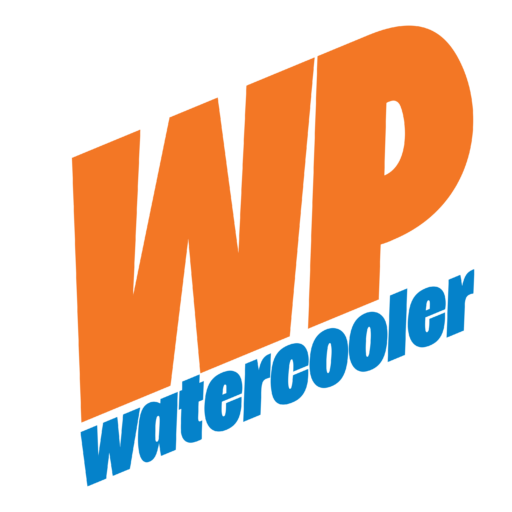
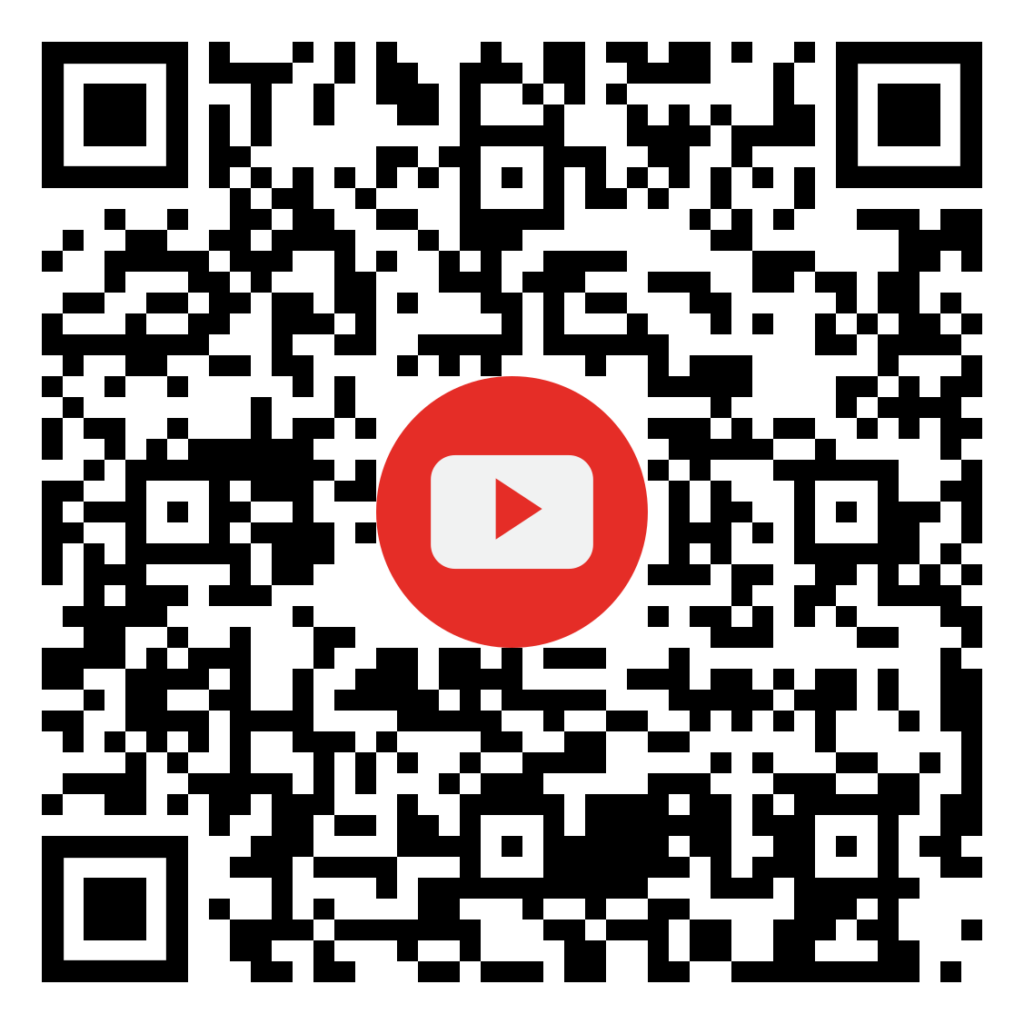

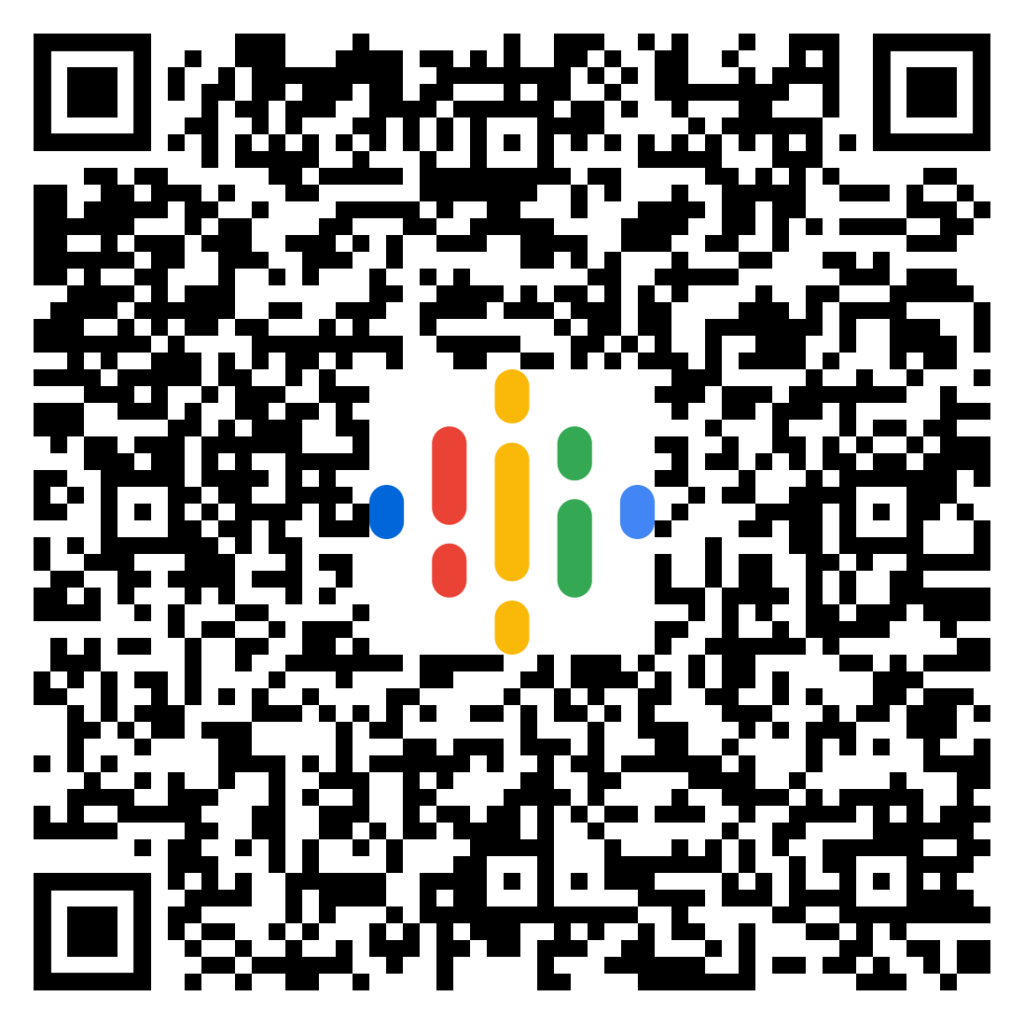
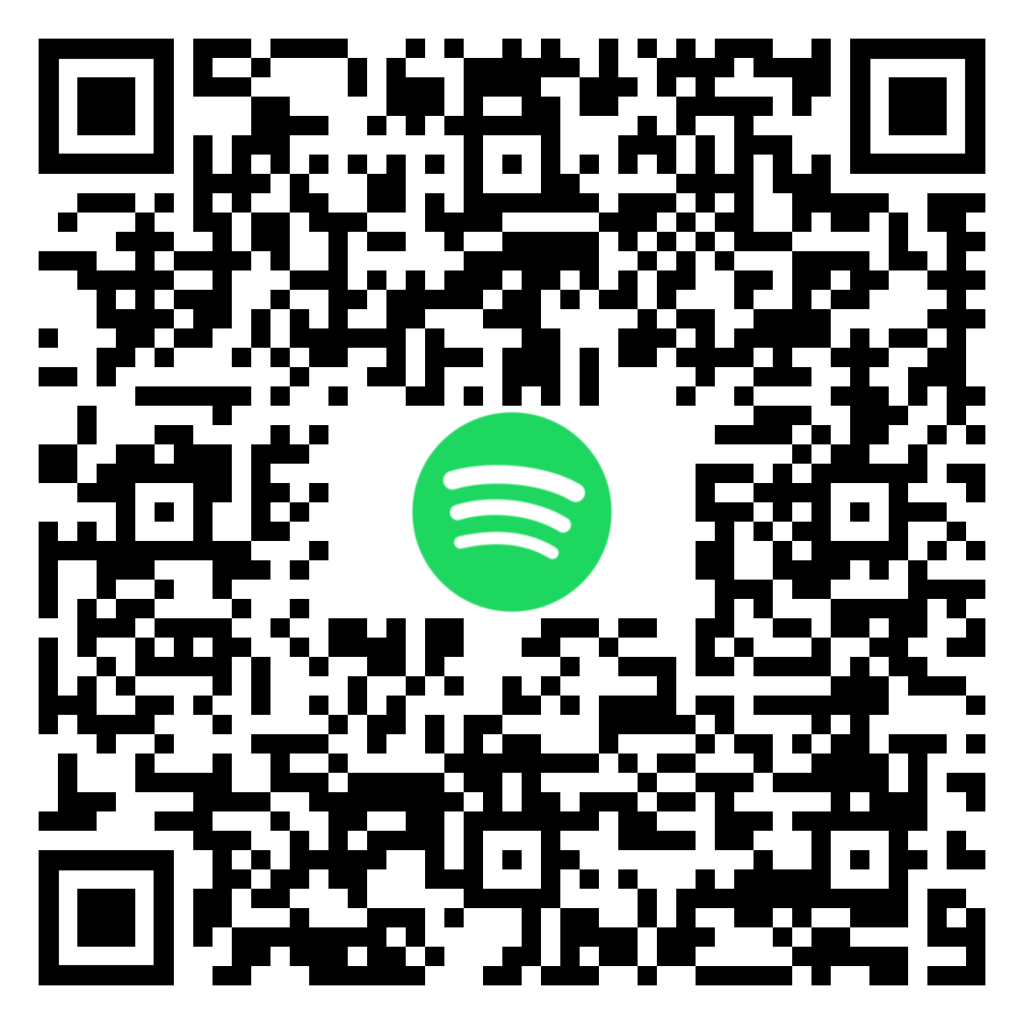

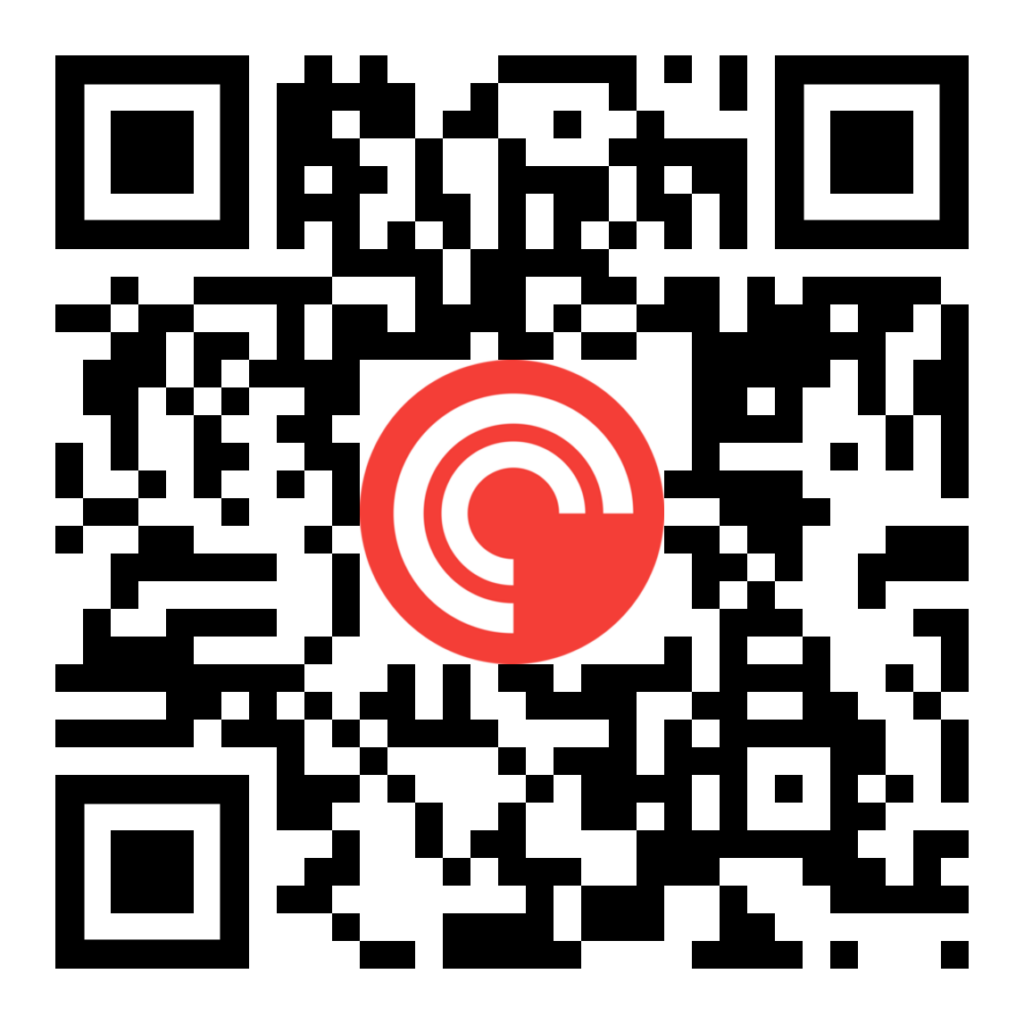

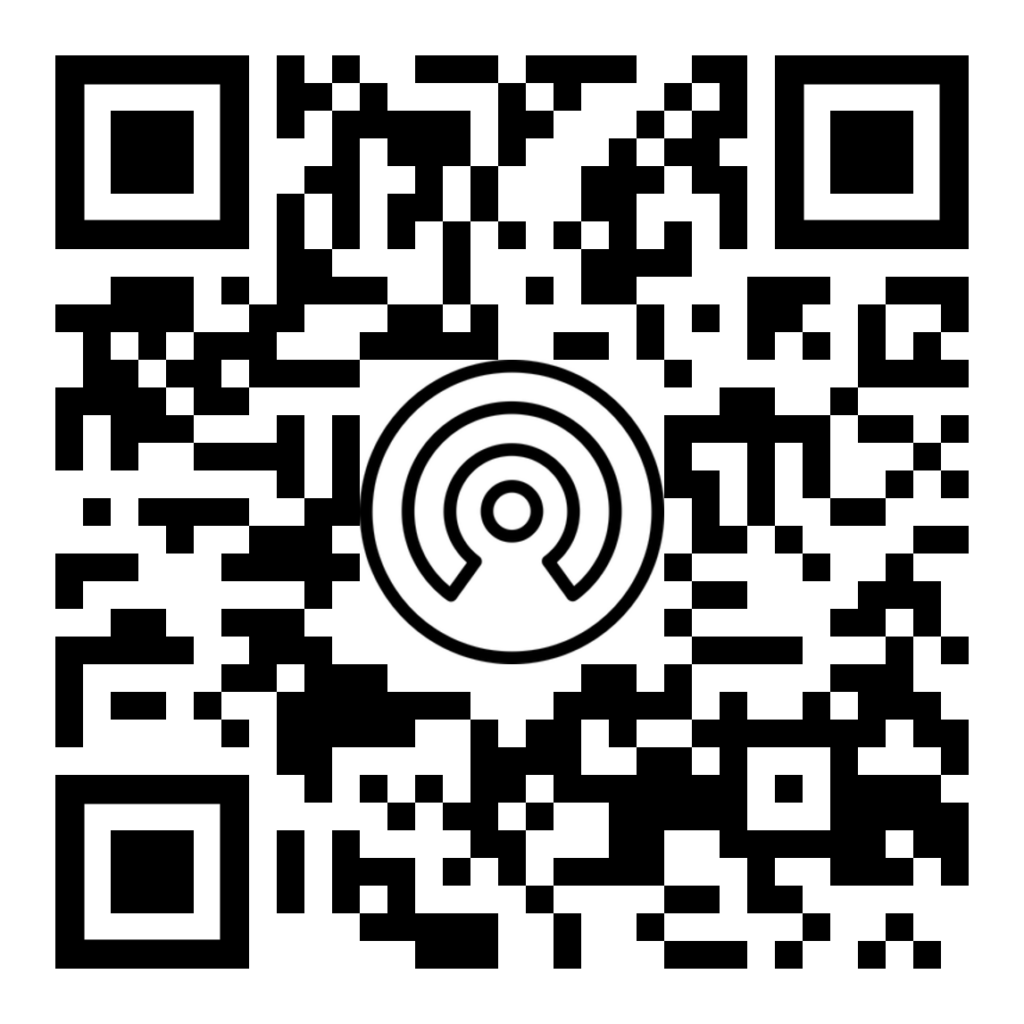
Leave a Reply